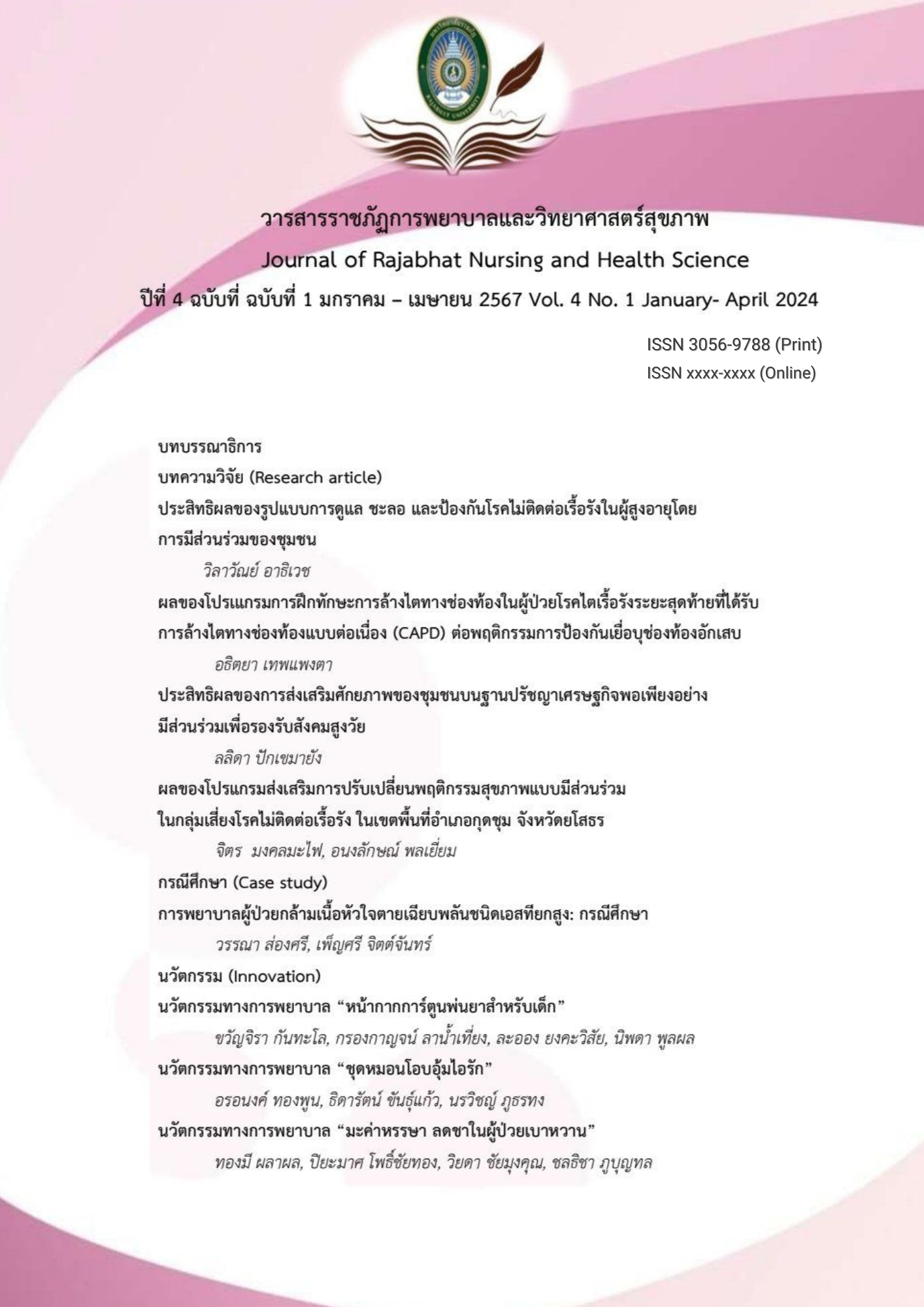ประสิทธิผลของรูปแบบการดูแล ชะลอ และป้องกันโรคไม่ติดต่อเรื้อรังในผู้สูงอายุโดยการมีส่วนร่วมของชุมชน
Abstract
This study is a quasi-experimental two-group comparative research before and after the experiment. The objective is to investigate the Effectiveness of the model for caring delaying and preventing chronic non-communicable diseases in the elderly through community participation. The sample group consists of 30 elderly individuals, selected for both the experimental and control groups through random sampling. Data collection tools include a self-management behavior questionnaire covering 1) nutritional aspects, 2) physical activity, 3) emotional management, and 4) rational drug use. Clinical outcome assessments and a brief Thai-language quality of life assessment. The data will be analyzed using descriptive and inferential statistics, comparing the two independent groups.
The study found that the elderly later joined in a community-based care and prevention program for non-communicable diseases in, there was a significant improvement. The experimental group demonstrated statistically significant higher scores in overall self-management behaviors and overall quality of life compared to the control group (p<0.05). Moreover, the experimental group showed a significant reduction in blood pressure levels, body mass index, waist circumference, and blood sugar levels compared to the control group (p<0.05).
Suggestions for caring, delaying, and preventing chronic non-communicable diseases in the elderly actions should be initiated with a participation process of all relevant network partners.



